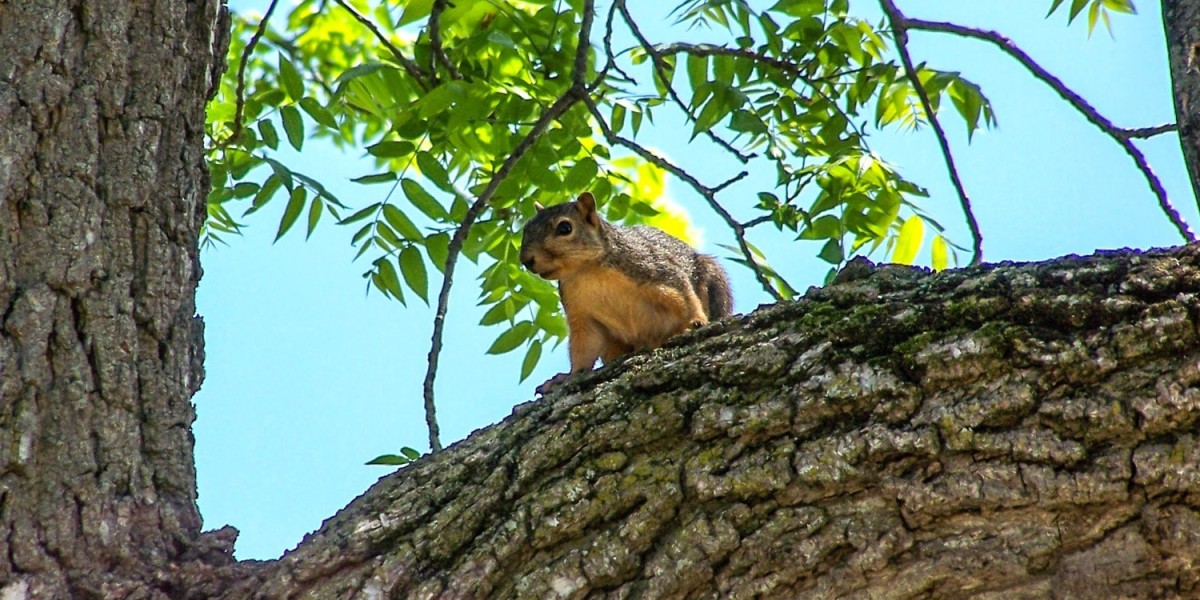Ontario, Canada, is a hunters paradiseespecially if youre looking to chase squirrels. But is it as simple as grabbing your gear and heading out any time of year? Heres the twist: in Ontario, hunting seasons are meticulously managed, and understanding the rules is crucial if you want to stay within the law.
In fact, while some small game, like rabbits and squirrels, have extended seasons, they arent open year-round everywhere. According to the Ontario Ministry of Natural Resources and Forestry, each species and hunting zone has its unique calendar, making timing everything.
So, if youre planning a squirrel hunt, youll need more than a sharp aim; youll need to know the dates, regulations, and even the best spots to hunt responsibly. Lets break it all down so you can be well-preparedand avoid any unpleasant surprises in the field. Ready to discover the ins and outs of Ontario's squirrel hunting laws? Lets dive in.
Understanding Ontarios Hunting Regulations
In Ontario, hunting regulations are outlined by the Ministry of Natural Resources and Forestry (MNRF). These rules arent arbitrarytheyre designed to maintain healthy wildlife populations, ensure public safety, and promote ethical hunting practices. For small game like squirrels, specific regulations and seasons apply, often varying by Wildlife Management Units (WMUs) across Ontario. Its important to note that squirrel hunting is not allowed year-round in Ontario. Hunting season dates differ based on region and other factors, and restrictions may apply to the types of firearms used or bag limits.
Tip: Always check the MNRFs official website or consult the latest hunting regulations guide before planning your hunt. These resources provide up-to-date information on open seasons, hunting zones, and permissible hunting equipment.
Squirrel Hunting Seasons in Ontario
The hunting season for squirrels in Ontario generally spans from September to December. However, this period may vary depending on your WMU. Hunters must consult local regulations, as some areas might allow hunting later into winter, while others might close the season earlier. Unlike large game, which has shorter, tightly restricted seasons, squirrels and other small game have more extended seasons that allow hunters greater flexibility.
For example, WMU 73, which encompasses southern Ontario regions, often has extended seasons, while more northern WMUs may have shorter windows due to environmental considerations.
Choosing the Right Equipment for Squirrel Hunting
Squirrel hunting requires precision, and choosing the right gear is key. Opt for a small caliber rifle or an air gun for ethical and effective hunting. Shotguns are also allowed but should be used cautiously to avoid meat damage, as small game like squirrels is best harvested with a clean shot. Many hunters find that a .22 caliber rifle offers the right balance of range and accuracy.
Important Reminder: Be sure your hunting equipment complies with Ontarios hunting regulations, as certain weapons may have restrictions in various WMUs. For example, larger calibers used for deer hunting are often unnecessary and unsuitable for squirrels.
Tips for a Successful Squirrel Hunt
Squirrel hunting requires patience, stealth, and an eye for detail. Here are some tried-and-true tips to help you make the most of your experience:
Scout for Areas with Abundant Food Sources: Squirrels are often found near trees bearing nuts, such as oak, beech, and hickory. Scouting these areas beforehand increases your chances of spotting them.
Wear Camouflage and Remain Silent: Squirrels are highly alert creatures, so wearing camo and moving slowly can help you get close without alarming them.
Learn the Best Times to Hunt: Squirrels are most active in the early morning and late afternoon. Arriving early or staying late can give you an advantage.
Practice Your Aim: Squirrel hunting requires precise shots to ensure a clean harvest. Spend time at a range or practice with small targets to sharpen your skills.
Legal Considerations and Ethical Hunting
Beyond following the season dates, ethical hunting involves responsible practices. Only hunt squirrels you plan to harvest for food, and avoid disrupting other wildlife or damaging habitats. Ethical hunters contribute to wildlife preservation by reporting any unusual behavior or signs of disease they observe in the field.
Ontarios hunting community is built on respect for wildlife and nature. Each hunter has a responsibility to follow local rules, hunt ethically, and stay informed about regional updates. By respecting these principles, hunters ensure that the sport remains sustainable and that wildlife populations stay healthy.
Hunting Licenses and Tags
To hunt squirrels in Ontario, hunters must hold a small game hunting license. This license is distinct from big game tags, such as those required for the deer hunting season Ontario 2024, and is available to residents and non-residents alike. Additionally, first-time hunters may need to complete a Hunter Education Program before they are eligible to purchase a license. Ontarios hunting license system promotes safe and responsible hunting by ensuring that all participants are well-informed and adequately prepared.
The Importance of Conservation and Community
Ontarios hunting seasons and regulations are structured to support the environment, and hunting is an important element of wildlife management. By keeping squirrel populations balanced, hunters contribute to a healthier ecosystem, helping prevent overpopulation, which can lead to disease and food scarcity. The hunting community also has a strong tradition of conservation and stewardship, with many hunters contributing to programs that protect and sustain Ontarios natural resources.
Ontarios hunting laws and seasons are a crucial part of the provinces commitment to sustainable wildlife management. If youre planning to purchase hunting gear, such as rifles or camouflage clothing, checking out Gun Stores Canada can help you find the equipment you need. From understanding seasonal guidelines to selecting the right gear, a prepared hunter is a successfuland responsiblehunter.
Conclusion
Squirrel hunting in Ontario is a rewarding outdoor activity, but its essential to respect the regulations that govern it. By understanding hunting seasons, knowing your WMU, and preparing responsibly, you can enjoy a safe and ethical hunt. Remember, Ontarios wildlife regulations are designed to preserve the natural balance, support animal populations, and ensure that hunting remains a positive, sustainable tradition. Happy hunting, and heres to a successful and responsible squirrel season!










